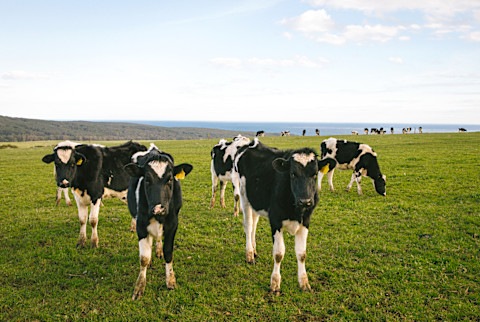
In this day and age, growing your own food is not only in vogue, it is an intelligent decision for a lot of reasons. What was once a necessity is now becoming an admired and commendable way to live. However, for many modern meat-eating Americans, killing a bird to make a chicken sandwich might be a painful realization of what “farm to table” actually involves. Some of us who eat meat may feel no remorse when we eat a chicken, but ask us to kill the bird ourselves and we might be clucking a different tune.
I recently came across a “Wongism” from yoga master Duncan Wong. He wrote, “Animals kill or forage their own wild food one-on-one everyday but we don’t and that’s the real spiritual imbalance between humans and other animals. If you can’t or won’t kill, then you are a vegetarian waiting to awaken.”
For centuries, people have been hunting and or raising animals for food. There were also ancient cultures that remained almost exclusively vegetarian, even to the point of denying the use of pelts, feathers or hides for building or clothing material. Even though we are omnivorous by nature, it seems as if humans are either in the meat eating camp or are not, for a number of reasons.
Today, many Americans have lost a connection to their food due to the ease and convenient way it is acquired. As our country returns to a culture populated by localized self-sustaining farm communities, meat eaters who never had to think about killing something themselves will come face to face with a big decision. Some will not be affected, naturally, but for others the days of being disconnected will end and this could potentially awaken something within.
My husband and I are about to slaughter three roosters because we have three too many in our coop of peaceful laying hens. The plan is to catch them, chop off their unknowing heads and watch them bleed out as they take their final steps. My brother, a chef in the south of Sweden sent me a lovely Coq au Vin recipe but I am not convinced that I am really going to be able to partake in the slaughter, let alone eat something I’ve murdered.
Coming back to the wise words of Wong, the topic here is about being in a spiritual balance with respect to our philosophy of life and death. We must stay true to ourselves, but also understand what that really means. If killing your own food conjures up some sort of innate, sincere and spiritual connection to the animal, so be it. If killing an animal with your bare hands feels strange and wrong, perhaps you will wake up to your inner vegetarian (if you haven’t already) as Wong’s quote so eloquently suggested.
Our omnivorous bodies are designed to eat meat, yet for some, our hearts and minds are not. Looking into the eyes of our sweet, innocent and defenseless roosters knowing that I plan to kill and eat them has really hit home for me. I feel I’ve learned something that cannot be taught, force-fed or brainwashed into perspective, even through many meatless days of living in an ashram.
I am up close and personal with the question of whether or not I will or won’t kill. I think my inner vegetarian just woke up. Or has it? If you are a meat eater, do you believe that if you can’t or won’t kill an animal yourself you should forgo eating meat?
Meat eating or vegetarian, let’s return to being in spiritual balance and get back to our raw, instinctive and true nature of who we really are, and learn to love and embrace whatever that may be.
